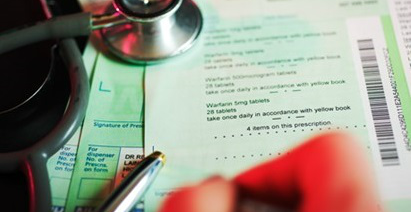GP ‘recommendation prescriptions’ could save NHS ‘millions’, say pharma leads

New GP ‘recommendation prescriptions’ could save the NHS ‘millions’ by ‘empowering’ patients to self-care for minor illnesses, claims trade association for over-the-counter medicine manufacturers.
The Proprietary Association of Great Britain, which represents the manufacturers of branded OTC medicines, as well as self-care medical devices, has called for these prescriptions to be used by GPs for patients with self-treatable conditions, to help them ‘self-care and reduce pressure on stretched NHS services’.
These proposed prescriptions include a space for GPs to write details of the minor illness, any self-care advice and details of recommended OTC medicines that the patient can buy from a pharmacist.
The PAGB said it’s ‘confident’ that this will make a ‘positive difference’ and claimed that it could help save the NHS ‘millions by empowering people to self-care’.
It added that the scheme has already been ‘successfully’ implemented in Germany back in 2004.
Chief executive John Smith said: ‘OTC medicines play an important role in helping people manage symptoms of self-treatable conditions so they can get on with their day. However, many people lack the knowledge on which medicines are available without a prescription and look to their GP for advice.
London GP and media medic Dr Sarah Jarvis, said: ‘In my practice, we routinely ask patients to buy OTC medicines from the pharmacy rather than writing a prescription.
‘We try hard to encourage people not to consult their GP in the first place for minor illnesses, such as conjunctivitis, thrush, and occasional heartburn, but appreciate that some people still want the reassurance of a doctor’s advice.’
But GP and LMC representative for West Kent Dr Zishan Syed said: ‘Recommendation prescriptions will not work because they do not tackle the root cause of the problem. GPs are being approached to obtain free prescriptions by a significant proportion of individuals as they would otherwise have to pay for them’.
‘Furthermore many patients want to be assessed by doctors and do not want to speak to other health care professionals. It is important to respect this and to stop pursuing the government agenda of replacing doctors with pharmacists because the government does not wish to sort out serious problems affecting the working lives of doctors.’
When asked by Pulse if it would consider this approach, an NHS England spokesperson responded: ‘GPs already provide general advice on minor illnesses and recommend medications that can be easily purchased over the counter without prescription, and anyone with a manageable condition like indigestion or a cold which does not normally require medical treatment, can visit their local pharmacist for help’.
This comes after NHS England issued guidance last month, with the hope of reducing OTC prescribing for conditions such as constipation, diarrhoea and athlete’s foot.
Their guidance followed a consultation which was launched last year, and states that putting a stop to the routine prescribing of these medicines will save almost £100m. They said this could be reinvested in front-line services.
The recommendations cover 35 minor, short-term conditions, including dandruff, indigestion, mouth ulcers, travel sickness and coughs and colds.
Pulse October survey
Take our July 2025 survey to potentially win £1.000 worth of tokens

Visit Pulse Reference for details on 140 symptoms, including easily searchable symptoms and categories, offering you a free platform to check symptoms and receive potential diagnoses during consultations.









